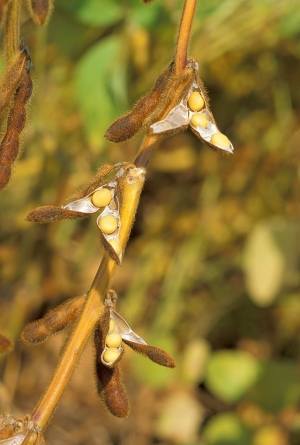


(Posted on 11/05/21)
In markets around the world, including Japan, sustainability is top of mind for consumers and end users. 73% of Japan’s imported soybeans come from the United States and as consumer demand for sustainability has grown in that country, it has become increasingly important for Japanese companies to envision and map out the supply chain for U.S. soybeans.
As sustainability demand ramps up, USSEC’s boots on the ground are staying ahead, partnering with the Japanese industry. Mitsuyuki Nishimura, USSEC country director – Japan, says a number of the organization’s activities address sustainability demand, including:
USSEC Japan is also focused on its largest sustainability project thus far, says Masako (Masi) Tateishi, USSEC director of human utilization for Japan. “The 2020/21 sustainability campaign builds awareness of sustainable U.S. Soy,” she explains. USSEC recently formed a strategic partnership with Japanese media group Nikkei to develop and disseminate the U.S. Soy sustainability story through various media. Tateishi adds that in the coming months (May – September), USSEC Japan will develop a TV program; offer cooking lessons using sustainable U.S. Soy targeting more than 2,000 students in about 100 schools; sponsor WOMAN EXPO 2021; and organize the Sustainable Soy Food Symposium inviting a local sustainability and environmental, social, and corporate governance (ESG) investment expert.
USSEC’s sustainability efforts in Japan, says Nishimura, are beginning to pay off with positive results. Two companies on USSEC’s top target list said they would commit to using the SSAP for the sourcing of soybeans. And in marketing year 20/21, SSAP-certified soy shipments to Japan represented nearly 100% of the country’s total U.S. soy imports as of April, according to Abby Rinne, USSEC director of sustainability.
USSEC Northeast Asia Regional Director Roz Leeck recently sat down with the website Sustainable Japan to talk about the sustainability of U.S. soybeans and soybean products. In a wide-ranging interview, Leeck discussed topics including the SSAP, transparency, regenerative agriculture, and the resiliency of the U.S. soy supply during COVID-19.“USSEC issues SSAP certificates, which verify that soybeans meet certain standards, and these efforts are one way to eliminate consumer anxiety,” said Leeck. “[Nearly all] of the soybeans that Japan imports from the United States are SSAP verified,” she continued. “Therefore, Japanese food companies can easily build transparency regarding sustainability simply by publishing the fact they are purchasing SSAP soybeans.”
The National Grain and Feed Association (NGFA) has applauded Senator Deb. Fischer’s (R-Neb.) reintroduction... Read more
Anglo American plc and Teck Resources Limited have received regulatory approval from the Government... Read more
The Rhodes Ridge Joint Venture has approved a $191 million (A$294 million) (Rio Tinto share $96 million... Read more
Trafigura Group Pte Ltd, a global leader in the commodities industry, has announced its financial results... Read more
Rio Tinto has successfully produced the first copper from the Johnson Camp mine in Arizona using its... Read more
The American Soybean Association’s World Initiative for Soy in Human Health programme and the... Read more
Karlka Nyiyaparli Aboriginal Corporation (KNAC) Registered Native Title Body Corporate and Rio Tinto... Read more
OCI Global, a leading global producer and distributor of nitrogen products has announced that it has... Read more
In December 2024, SSAB was granted a permit by the Land and Environment Court at Umeå District... Read more
The President of the Republic of Guinea has joined project partners WCS1, Baowu, Chinalco and Rio Tinto... Read more